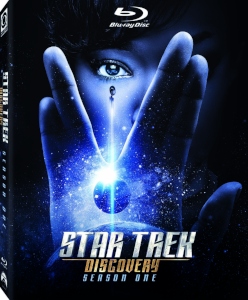As a franchise, “Star Trek” has boldly gone many places, and not all of them have been good.
While the original series is legendary, and “Next Generation” improves on it, things started to fall apart with “Deep Space Nine,” which cribbed so much from “Babylon 5” that it felt like a cheat calling it “Trek” at all. “Voyager” upped the camp level and became the goofy uncle of the franchise. It was ridiculous, over the top, fun, but never very good. The less said about “Enterprise,” the better.
On the big screen, “Nemesis” derailed the “Next Gen” movie franchise, and when J.J. Abrams took the helm with a rebooted cast and an alternate timeline, the result was a rollicking, entertaining diversion that bared only superficial resemblance to the heritage it was laying claim to.
The last time “Trek” really felt like “Trek” was 1998’s “Star Trek: Insurrection,” which trafficked in the parables and ideas the franchise is so beloved for. Even that played like a middling episode of “Next Gen,” though.
The point is that genuine, real “Star Trek,” the type of “Trek” that demands audiences think, that holds up a mirror to us and shows us all the myriad faults and quirks in our society and selves, hadn’t existed for nearly two decades when “Star Trek: Discovery” (CBS All Access) came along, and now that it has, that drought can be proclaimed ecstatically to be over.
As Season 1 drew to a close on Sunday it brought with it a flotilla of themes and thoughts, lessons and ideals.
In Michael Burnham it finds a heroine cast adrift and seeking absolution. Through her story, “Discovery” deftly explores the wages of fear and prejudice, but it has more on its mind than race.
As the story gradually unfolds, in a refreshing, arc-based structure new to the typically episodic franchise (yes, I’m aware of the Dominion war in DS9, but it wasn’t built this painstakingly, and was nowhere near as satisfying), “Discovery” thoughtfully discusses political posturing, faith and what makes each of us who we are.
The show isn’t afraid of ambiguity. It isn’t afraid to take risks. It walks an impossible line, staying true to the spirit of the franchise while experimenting with style and content. The result is a darker “Trek” that deals with the birth pangs of Gene Roddenberry’s utopia.
In its first season, “Discovery” shows itself as a smart show, willing to traffic in gray areas, willing to think, willing to challenge audience expectations and ask difficult philosophical questions without easy answers. That it does so while also being genuinely entertaining and fun, and introducing new characters worth our interest and sympathy is just icing on the cake.
Bring on Season 2!

